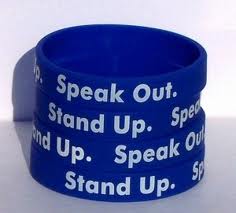Creating a “Speak Up” Culture and Whistleblowers
 Many companies do not realize the importance of creating a “Speak Up” culture and how to deal with whistleblowers. Too many companies say they want to hear about problems but when employees raise the issues they become defensive. This is particularly true when dealing with whistleblowers.
Many companies do not realize the importance of creating a “Speak Up” culture and how to deal with whistleblowers. Too many companies say they want to hear about problems but when employees raise the issues they become defensive. This is particularly true when dealing with whistleblowers.
The natural response to a whistleblower is to deny any claims of wrongdoing or misconduct. After denial, companies tend to circle the wagons against the whistleblower and ostracize the whistleblower for being “disloyal” to the company. Even more risky, companies begin to envelop the whistleblower in tacit retaliation. Sometimes, companies explicitly engage in retaliation.
The danger of retaliation is becoming more significant. Whistleblowers are extremely sensitive to subtle means of retaliation. If a company engages in retaliation, the company’s problems multiply exponentially. There are plenty of lawyers out there seeking to represent whistleblowers and they are a sophisticated bar that can seriously threaten companies.
All of these problems are avoidable. In the end, a “Speak Up” culture is an important company asset that provides significant benefits and insurance against major whistleblower complaints.
First, a “Speak Up” culture is not only healthy but it can have tangible benefits leading to early intervention and avoidance of major disasters. Not all whistleblower claims are accurate or helpful. Sometimes they are a waste of time and energy. However, on occasion, whistleblowers have sought to raise important issues that, in hindsight, should have been addressed.
 Second, the risk of whistleblowers reporting concerns to the government diminishes when a company creates and promotes whistleblowers. Everyone cites the financial incentives for whistleblowers to seek financial rewards from the government. That is one motivation but it is not the only factor that motivates whistleblowers.
Second, the risk of whistleblowers reporting concerns to the government diminishes when a company creates and promotes whistleblowers. Everyone cites the financial incentives for whistleblowers to seek financial rewards from the government. That is one motivation but it is not the only factor that motivates whistleblowers.
Many whistleblowers want to report their concerns internally. They want to be heard. In many cases, all they want is for the company to recognize their concerns and respond to their concerns.
A “Speak Up” culture does more than just create comfort for a whistleblower to raise concerns; it creates an atmosphere that encourages and rewards whistleblowers for raising those concerns. Also, a Speak Up culture protects whistleblowers from retaliation and discourages managers and employees from threatening or carrying out any retaliation against a whistleblower.
At the heart of a “Speak Up” culture is the need to encourage reporting of employee concerns, and respond to such concerns in a timely manner. It is a system that can handle large numbers of concerns, efficiently administer the response to the concerns and build trust through timely and effective responses.
 Encouraging whistleblowers does not mean that everything they report is accurate or should be treated as gospel. Whistleblowers can be wrong, and their motivations can cloud their judgment. Companies have to respond to whistleblower concerns with fairness and objectivity.
Encouraging whistleblowers does not mean that everything they report is accurate or should be treated as gospel. Whistleblowers can be wrong, and their motivations can cloud their judgment. Companies have to respond to whistleblower concerns with fairness and objectivity.
Sometimes the company is right and sometimes the company is wrong. The same applies to whistleblowers.















